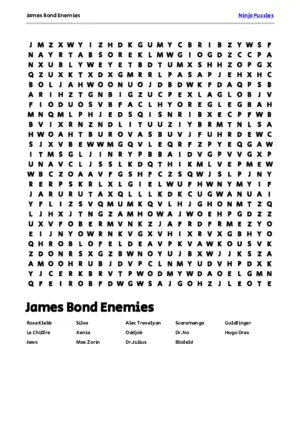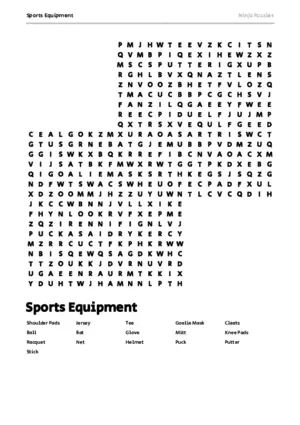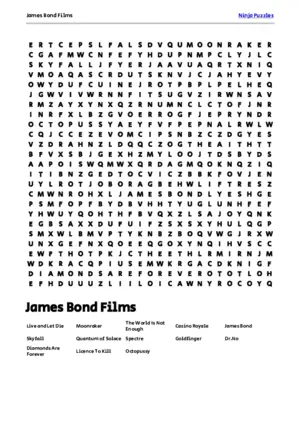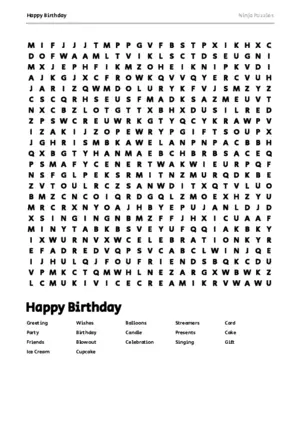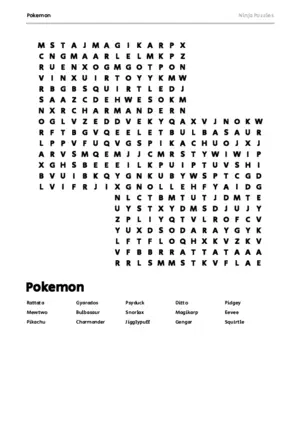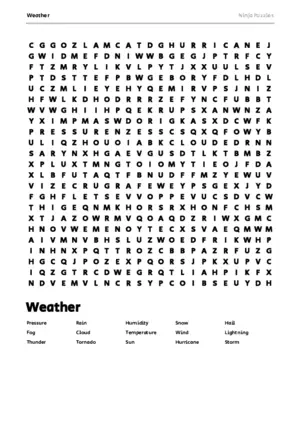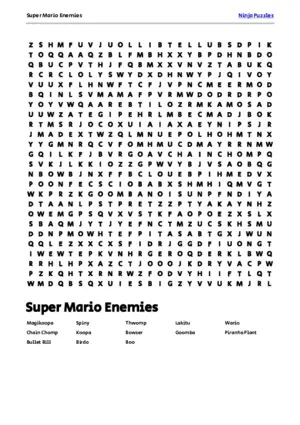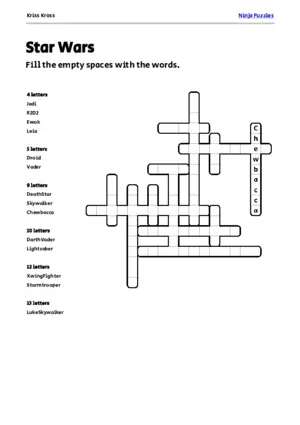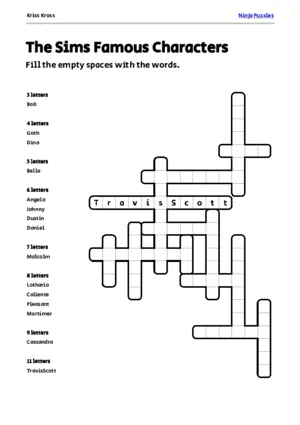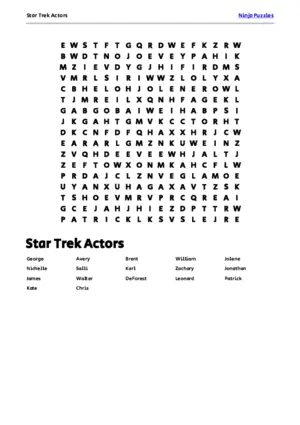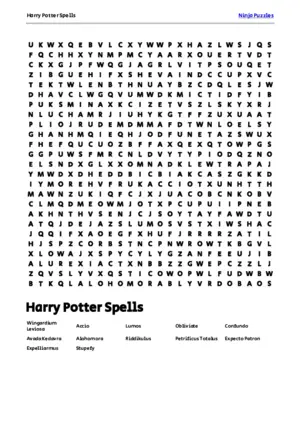Word Search Tips and Techniques
There’s something undeniably captivating about the humble word search puzzle. Its grid filled with seemingly random letters holds the promise of hidden words waiting to be discovered.
Word searches have a unique ability to engage and entertain people of all ages, providing a satisfying challenge that combines mental agility, vocabulary skills, and a dash of puzzle-solving excitement.
The popularity and appeal of word searches
Word searches have gained immense popularity over the years, becoming a staple in newspapers, magazines, puzzle books, and online platforms.
They have become a beloved pastime for individuals seeking a delightful way to relax, exercise their brain, and immerse themselves in a world of words.
The simplicity of the concept, coupled with the joy of uncovering hidden words within a grid, has made word searches a timeless favorite among puzzle enthusiasts.
Developing effective strategies to solve Word Searches
While word searches may appear straightforward, the ability to solve them efficiently and effectively requires more than just luck or random searching.
Developing and employing strategies can significantly enhance your word search solving skills, enabling you to tackle puzzles with confidence and achieve greater success.
Whether you’re a casual solver or a dedicated word search enthusiast, honing your strategic approach will not only enhance your enjoyment but also boost your speed and accuracy.
In this article, we will delve into the world of word searches, exploring various strategies that can elevate your solving abilities. From analyzing the puzzle structure to utilizing systematic scanning techniques, we will guide you through the process of approaching word searches strategically. Furthermore, we will explore how factors such as word length, letter frequencies, contextual clues, and knowledge of word associations can be leveraged to your advantage. So, prepare to unlock the secrets hidden within those perplexing grids and unleash your inner puzzle solver.
Starting with the easy and obvious words
- Begin your word search by locating and marking the words that are easiest to spot. These are typically shorter words or those that contain unique letters or distinctive patterns.
- By finding and crossing off these words, you create clear sections of the puzzle grid, making it easier to focus on the remaining words.
Utilizing systematic scanning techniques
Horizontal scanning
- Start at the leftmost side of the puzzle grid and scan each row from left to right, systematically moving across the grid.
- Look for the first letter of each word in the word list and track its position horizontally.
- Continue scanning each row until you find a match or reach the end of the row.
Vertical scanning
- Similar to horizontal scanning, begin at the topmost row and scan each column from top to bottom.
- Search for the first letter of each word in the word list and track its position vertically.
- Continue scanning each column until you find a match or reach the bottom of the column.
Diagonal scanning
- Diagonal scanning involves searching for words that are placed diagonally across the puzzle grid.
- Start from the top-left corner and scan diagonally, moving either towards the bottom-right or bottom-left corner.
- Pay close attention to the first letter of each word and follow the diagonal path until a match is found or the end of the diagonal line is reached.
Backward scanning
- In addition to searching for words that appear in the forward direction, remember to also search for words spelled backward.
- Utilize the same systematic scanning techniques as above but in the opposite direction, starting from the rightmost side or the bottom of the grid.
Using word length and letter frequencies to guide the search
- Take advantage of word length and letter frequencies to prioritize your search efforts.
- Longer words tend to be more challenging to find, so focus on them once you have crossed off the shorter words.
- Consider the frequency of certain letters in the puzzle grid and use it as a guide. Common letters like “E,” “A,” and “T” are more likely to appear multiple times, making them easier to locate.
Employing contextual clues and knowledge of word associations
- Use contextual clues within the puzzle to help locate words that might be related to a particular theme or topic.
- If the word search has a specific theme, consider how certain words might be connected or associated with each other.
- Take advantage of your own knowledge and associations with certain words or phrases to assist in the search process.
- For example, if the puzzle has a sports theme, words like “ball,” “team,” or “score” might be related to each other.
By employing these strategic approaches to solving word searches, you can enhance your efficiency and increase your chances of successfully finding all the hidden words in the puzzle grid. Remember to stay focused, patient, and persistent, as solving word searches is both a challenge and an enjoyable exercise for the mind.
More Tips for Solving Word Searches
- Start with the words you know: Look for familiar words or words that stand out to you. This will give you a head start and make it easier to find other words.
- Use a pencil: Instead of circling or crossing off the found words directly on the paper, use a pencil so that you can erase if needed. This will prevent confusion and keep the puzzle neat.
- Break down larger words: If you come across a long word, try breaking it down into smaller parts. For example, if you see “waterfall,” look for “water” first and then search for “fall” separately.
- Look for patterns: Pay attention to any patterns in the grid that might help you locate words faster. For instance, some puzzles might have many words starting with the same letter in each row or column.
- Take breaks: If you’re stuck or feeling frustrated, take short breaks and come back to the puzzle later with fresh eyes. Sometimes stepping away for a little while can lead to new insights and make it easier to find elusive words.
- Practice regularly: The more word searches you solve, the better your skills will become. Make solving puzzles a regular habit to improve your speed and accuracy over time.
- Enjoy the process: Remember that solving word searches is meant to be a pleasurable activity, so don’t get too caught up in finding every single word. Focus on having fun, relaxing your mind, and enjoying the satisfaction of uncovering hidden words.

